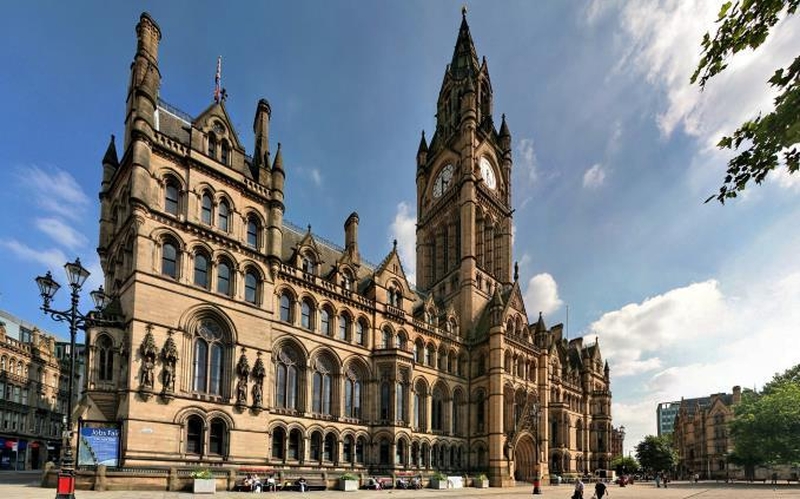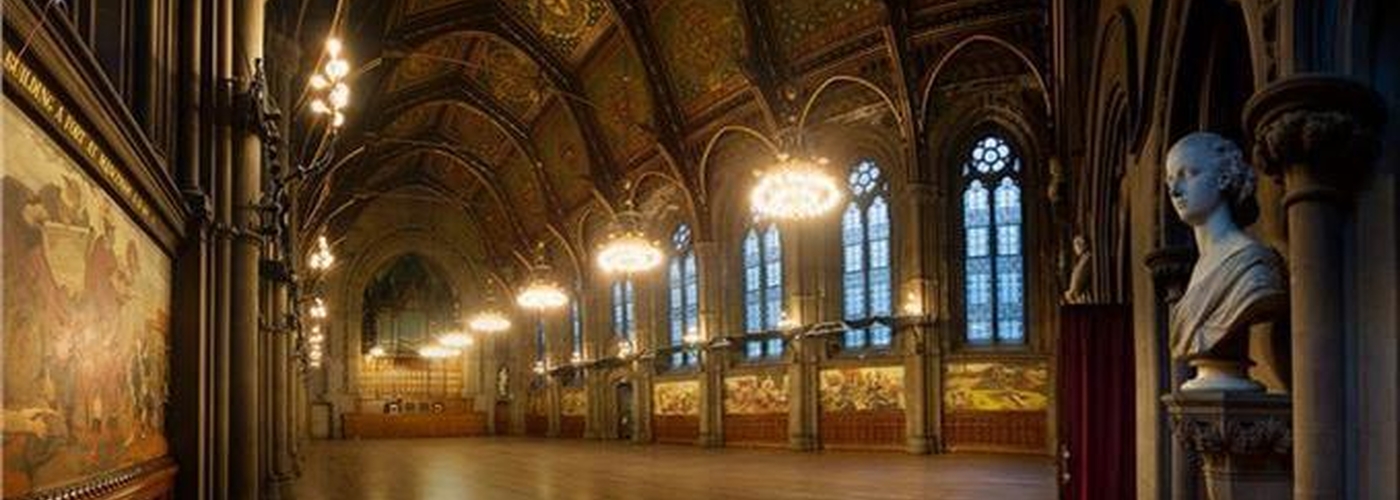Though plans to convert part of Alfred Waterhouse's Neo-Gothic masterpiece into a boutique hotel have been scrapped
SENIOR council members will be asked to give the final go-ahead to a major £328m project to safeguard and repair Manchester Town Hall and Albert Square at a meeting on Wednesday 8 March.
While Alfred Waterhouse's 140-year-old Grade I-listed Neo-Gothic masterpiece remains structurally sound, the council say many elements of the building are beginning to 'reach the end of their natural lifespans'.
A detailed eighteen month survey found that over 54,000 parts of the structure require attention, of which 40% needed immediate action (a figure which could rise to 85% within five years).
Key heritage features, such as the state rooms including the famous Great Hall (pictured top) and its Ford Madox Brown murals, also require restoration.
Without significiant work to address damage and defects, experts say the Town Hall will deteriorate to the point where it will become unfit for use and would need to be ‘mothballed.’
The target date for completion is 2023.
READ: Manchester Town Hall: Old Plans & A New Hotel (8 Nov 2016)
Deputy Council Leader Councillor Bernard Priest said: “Getting to this point has involved a long and meticulous process. But as a result of the rigorous work done we are confident that we have a scheme which will deliver real and enduring benefits for Manchester.
“Not only will it safeguard this much-loved masterpiece for current and future Mancunians, it will also improve public access to our Town Hall and its treasures and support the city’s economy by giving the building an enhanced role as a visitor destination – and even potentially as a base for emerging businesses.
“Allowing this iconic building to slide into decay and disuse is not an option. We are confident that we have struck the right balance in these plans between introducing some commercial elements which will help generate income to support services and preserving the Town Hall’s essential character.”

One such floated commercial element was the conversion of part of the building into a small boutique hotel. However, a study found that a hotel would cost an estimated £30m and involve 'too much ongoing financial risk for the Council'.
Market testing did find that parts of the Town Hall could be used to generate income via food & drink units and office space, with one option seeing council staff relocated from the Town Hall extension into the original building, thus freeing up space to market in the extension.
On Wednesday 8 March the Council Executive will be asked to authorise procurement for a main construction contractor for the project.














